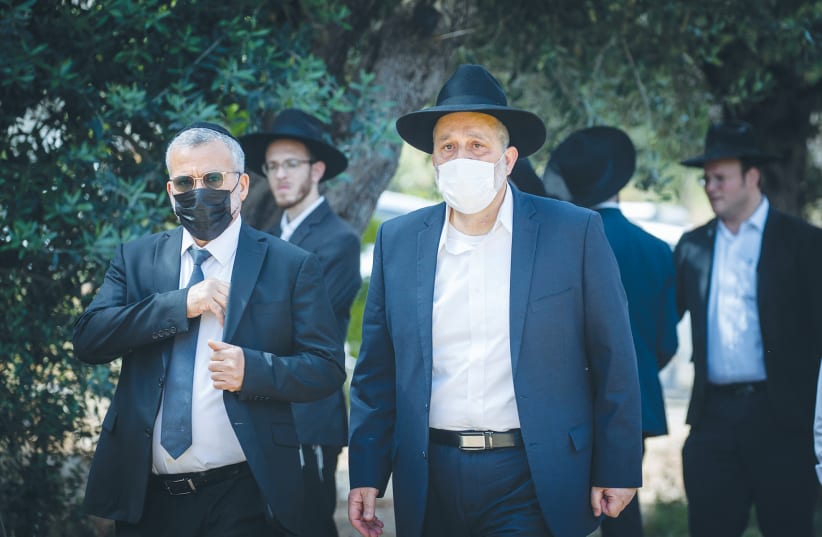Almost three weeks after 45 people perished in a mass crush at the Mount Meron holy site, two ultra-Orthodox parties – United Torah Judaism and Shas – have proposed the establishment of a public committee of inquiry that would, in practice, be controlled by serving government ministers.
There have been numerous calls for a state committee of inquiry, independent of the government, its members appointed by the president of the Supreme Court.
The government has resisted such calls, and no committee of inquiry of any type has been established for the Meron disaster, the deadliest civilian catastrophe in the history of the state.
The UTJ and Shas proposed, in a Knesset bill submitted by UTJ MK Yakov Asher, that the committee should comprise seven members and its chairman should be a former head of a local authority selected by the interior minister, currently Shas chairman Arye Deri.
Among the other six members, one would be a representative of the Interior Ministry appointed by the interior minister; another, a representative of the Public Security Ministry who has authority over the Israel Police, a ministry currently headed by Likud MK Amir Ohana; a third would represent the Religious Services Ministry appointed by Religious Services Minister Ya’akov Avitan of the Shas Party; a fourth would represent the Chief Rabbinate, chosen by the chief rabbis. The remaining two public representatives would be chosen by the Shas-appointed chairman of the committee in coordination with the rest of the members.
The bill states that in addition to the authority the committee would enjoy under the Law for Committees of Inquiry, the new committee would be empowered “to recommend the necessary measures to ensure that a disaster like Meron is never repeated.” This will include planning, construction and safety recommendations,” while at the same time avoiding “harm to the status of Meron as a holy place in accordance with the Law for the Protection of the Holy Places, and the various perspectives of Jewish law that are applicable at Meron.”
Labor MK Rabbi Gilad Kariv described the proposals by UTJ and Shas as “an attempted coverup,” asserting that the Interior and Religious Services ministries must be investigated over the catastrophe but were seeking to conduct such an investigation themselves.
“This bill is an unworthy attempt to whitewash an investigation of the Meron disaster," he said. "There is no need for special legislation and for certain there is no need for legislation which involves the government ministries and organizations which need to themselves be investigated.”
Kariv proposed legislation on Tuesday that would abolish the sweeping exemptions that allow ultra-Orthodox events of over 500 people to be held without a proper license.
Kariv said his bill was necessary in the wake of the Meron disaster and the collapse on Sunday of bleachers in a hassidic synagogue in Givat Ze’ev which left two dead and almost 150 injured.
According to Kariv, these two disasters shine a spotlight on the systematic failures that have allowed these incidents to take place without the correct licensing simply because they are religious events.
“The level of supervision and control over religious events in Israel is too low,” said Kariv.
“The fact that there are stakeholders who are not interested in the correct supervision only proves that the flaw in the law needs to be corrected,” he said.
Last week, Yesh Atid MKs, including party chairman and leader of the opposition Yair Lapid, submitted legislation requiring the establishment of a state commission of inquiry.
The Yesh Atid legislation noted that “despite repeated warnings… work to physically prepare the area and to rectify deficiencies, about which warnings were issued years ago, was not carried out.”
It said that a state commission was needed to prevent such tragedies in the future.
